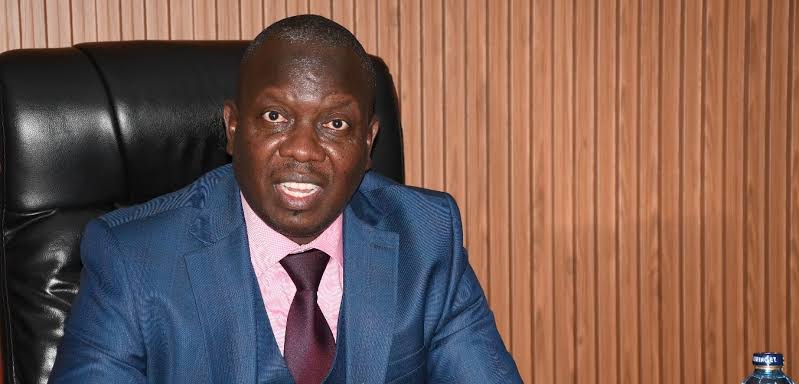The Director of Public Prosecutions, Renson Ingonga, is now facing strong public criticism for continuing to charge people using parts of the Cybercrimes Act that courts have already said are unconstitutional.
This has raised serious concerns about how the justice system is being used in Kenya, especially when it comes to silencing activists and suppressing digital freedoms.
Instead of correcting these mistakes, Ingonga’s office has allowed these questionable charges to continue, raising questions about whether he is doing this knowingly or simply following political instructions.

Standard newspaper headline tabling some of the issues with DPP.
According to a detailed report by The Saturday Standard, several legal experts and civil society groups have strongly condemned Ingonga’s actions.
They accuse him of either ignoring court decisions or being part of a larger plan to punish people who speak out. The spotlight is now on the case of activist Rose Njeri.
Her prosecution was thrown out by the court after it was found that the charges were vague, unclear, and violated her right to a fair trial. The court pointed to Article 25(c) and Article 50 of the Constitution, which protect every Kenyan from unfair legal processes.
This case shows a worrying trend. The Cybercrimes Act, which was originally meant to stop real cyber threats like hacking and digital fraud, is now being twisted into a weapon against citizens who speak out online.
What should have been laws to protect Kenyans from cyber criminals are now being used to punish online activism and civic tech.
Rose Njeri’s only “crime” appears to have been developing an app that allowed citizens to give feedback on the 2025 Finance Bill. Authorities claimed the app interfered with Parliament’s email systems, yet even the court saw through the weak charges.
Her arrest happened during a graduation ceremony, showing how far the state was willing to go to send a message. She was pursued by DCI officers, arrested, and later had her home searched where digital gadgets were taken.
After being held, she was later released on a personal bond of Ksh. 100,000. But her fight didn’t end there. She spoke to Citizen Digital and said that the arrest, while absurd, had only strengthened her resolve.
Magistrate Geoffrey Onsaringo later dismissed the charges, saying the prosecution failed to present a clear and valid case. The charge sheet was so poorly written that it couldn’t support any legal trial.
This shows a worrying level of incompetence from the DPP’s office, or even worse, a possible abuse of the law to settle political scores. Njeri’s case, while resolved in court, has exposed the larger problem of how cybercrime laws are now being misused by the state.
Civil society groups have responded with strong statements, warning that Kenya is walking down a dangerous path where digital innovation and free speech are treated as crimes. They argue that this is not just about Rose Njeri, but about a growing pattern where online voices and civic engagement are met with legal threats and arrests.
They also point out that arrests made on Fridays, like in Njeri’s case, are often done to ensure suspects are held over the weekend, cutting them off from legal support and public attention.
As more cases like this come to light, questions must be asked about the leadership of Renson Ingonga.
A DPP is meant to defend the Constitution and protect citizens from unfair prosecution. But under his watch, people like Rose Njeri are being dragged to court with faulty charges.
His silence on these issues only makes it worse. When courts repeatedly declare certain laws unconstitutional, yet his office keeps using them, it no longer looks like an accident. It looks like a deliberate effort to keep Kenyans afraid and quiet.
In a country where digital spaces have become one of the few remaining places for free expression, turning the law into a tool of fear is dangerous.



